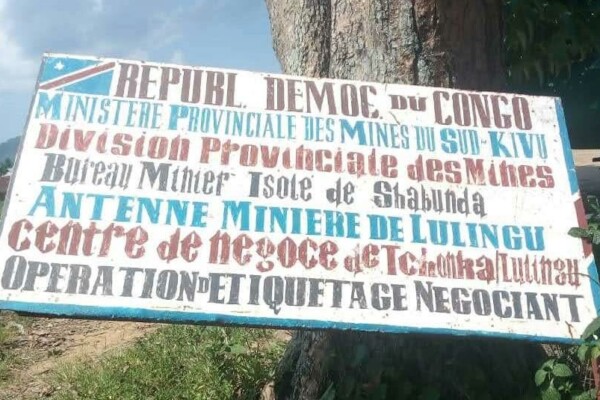
Comparative analysis of the fiscal regimes and implications for mineral trade of ASM 3TGs in Rwanda, Uganda, Burundi and the DRC
February 14, 2022This briefing paper looks at the relationship between mineral fiscal regimes and the smuggling of minerals in the Great Lakes Region, both within and between countries. It presents an overview and comparative analysis of the fiscal regimes applicable to the artisanal and small-scale (ASM) production of tin, tungsten, tantalum and gold (3TGs) in Uganda, Rwanda, Burundi and the DRC, looking at the p
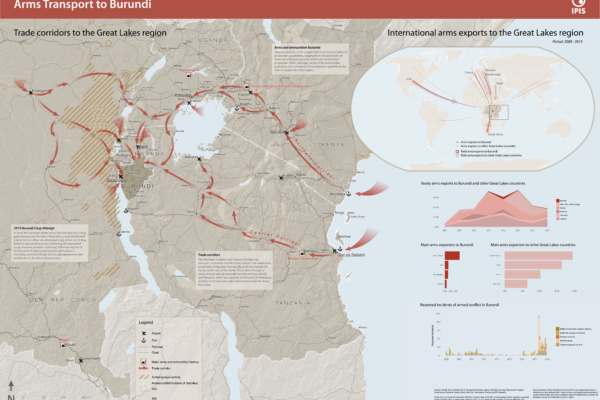
Arms Trade Corridors to Burundi
May 5, 2017Burundi has seen a period of unrest following the failed coup d’état by a Burundian general in May 2015. In order to better understand the situation, IPIS drafted a new map entitled ‘Arms transport to Burundi’, which puts the 2015 unrest in the geographical perspective of the Great Lakes region and in the relevant timeframe covering 2008 to 2015. The map highlights two important factors in the rec
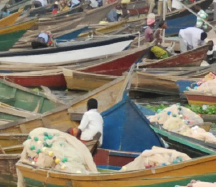
Business, Human Rights and Uganda’s oil. Part III: Respect and Remedy: Implementing corporate responsibility under the UN Framework on Business and Human Rights
December 31, 2015The following is the third in a series of four reports exploring business and human rights issues in Uganda’s oil sector. This series is a collaboration between IPIS vzw and ActionAid Uganda. The 2011 UN Guiding Principles on Business and Human Rights operationalise the 2008 Protect, Respect and Remedy Framework. In accordance herewith, this third report assesses the duty of businesses to respect

Thorns amongst the roses. A Cross-country analysis of human rights issues in flower farms in East Africa
December 31, 2015Floriculture is one of Africa’s most lucrative export sectors and can bring significant benefits to producer communities, but only where operations are conducted in a manner that is sustainable and respectful of the rights of workers and communities. Thorns Amongst the Roses summarises the human rights impacts that the International Peace Information Service (IPIS), the Global Horticultural Worker
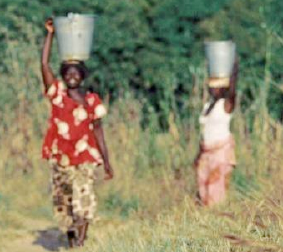
The Right to Water and Sanitation: A Practical Guide
June 1, 2015This guide is designed to raise awareness on the importance of the right to water and sanitation. It is addressed to those who work at the grassroots, and aims at helping them with practical ways to address the challenges of poverty and water issues. The guide adopts a bottom-up approach to highlight the steps that citizens and communities can take together with governments to address water and sa
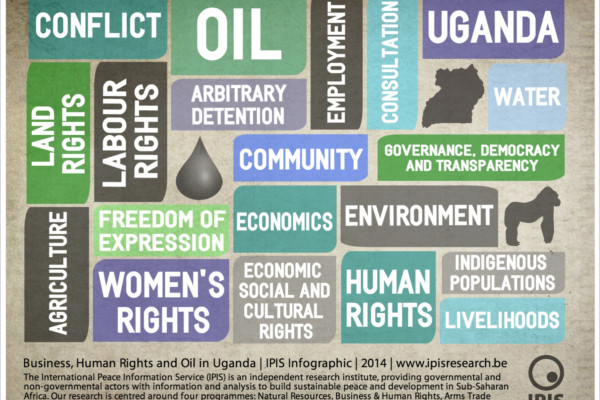
Business & Human Rights in Uganda: What’s on the Agenda?
March 5, 2014A few days after attending the annual UN Forum on Business and Human Rights in Geneva, IPIS Business & Human Rights Analysts Anna Bulzomi and Gabriella Wass boarded a plane to Kampala, Uganda, to run a two-day training with ActionAid Uganda for businesses and NGOs on “What does business & human rights mean, and how can we bring about a healthy relationship between the two?” This document s
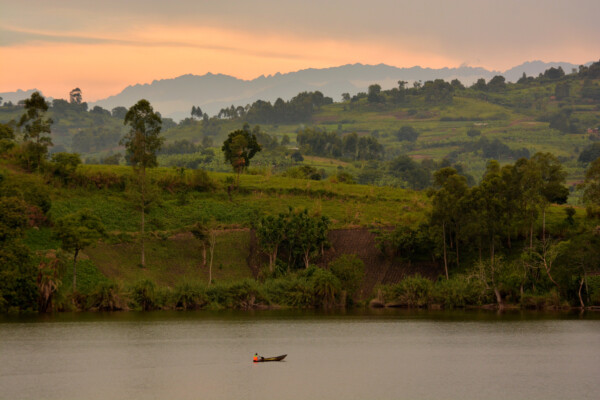
Business, Human Rights, and Uganda’s Oil – Part II: Protect and Remedy: Implementing State duties under the UN Framework on Business and Human Rights
December 18, 2013The following is the second in a series of four reports exploring business and human rights issues in Uganda’s oil sector. This series is a collaboration between IPIS vsw and ActionAid Uganda. In accordance with the UN Guiding Principles on Business and Human Rights, this second report assesses the duty of the Ugandan, British, French and Chinese States to prevent, investigate, punish and redress
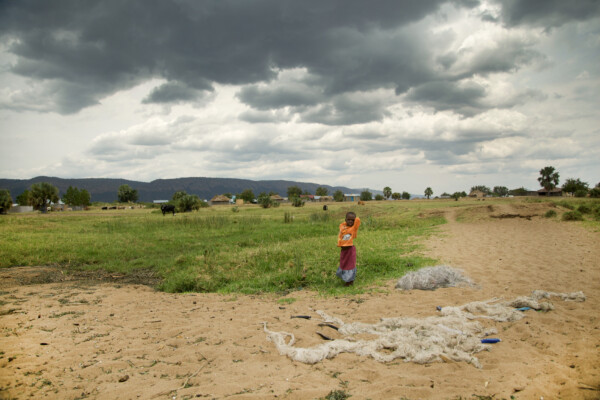
Business, Human Rights, and Uganda’s Oil. Part I: Uganda’s oil sector and potential threats to human rights
July 12, 2013The following report is the first of a series of four collaborations between IPIS Research and ActionAid International Uganda. The series sheds a light on the oil sector in Uganda, its possible impact on human rights, and how government, companies, and civil society can best enable a positive bond between oil and the welfare of the Ugandan people. This first report opens by providing a situational
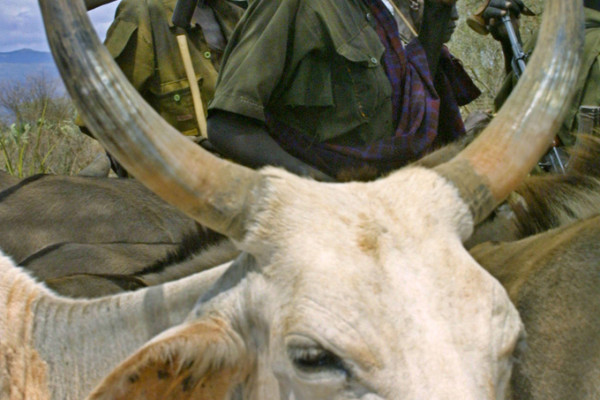
The Karamoja Cluster of eastern Africa: Arms transfers and their repercussions on communal security perceptions
December 31, 2010Nomadic peoples are often, if not universally, perceived as a problem by the governments of the nation states who have responsibility for them; this is particularly so in the case of the three nations with which this report is concerned, viz: Kenya, Uganda and (southern) Sudan. The pastoralist societies within the Karamajong cluster have been unable to adequately defend themselves politically agai
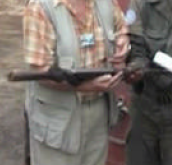
Greed and guns. Uganda’s Role in the Rape of the Congo
July 22, 2006This report deals specifically with the recent Ugandan involvement in the military, political and economic affairs of its giant western neighbour, the Democratic Republic of the Congo, which has contributed to a pattern of serious human rights abuses of the Congolese people. To corroborate evidence and gather additional information on Uganda’s involvement in the Congolese conflict the authors of t
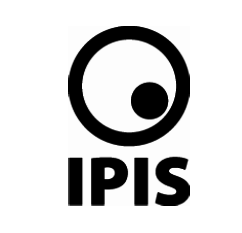
Illegale trafiek van wapens naar conflicten: De grote meren en Angola (123)
June 17, 1999Dit dossier bundelt een aantal voorlopige resultaten van een langlopend onderzoek naar de mechanismen van de illegale wapenhandel. Een meer uitgebreide en gedetailleerde studie verschijnt in het najaar en is het resultaat van een onderzoeksproject waarvoor I.P.I.S. samenwerkte met de organisaties NISAT (Noorwegen) en BASIC (Groot-Brittanië en de VS). Met het project willen deze organisaties de pro

